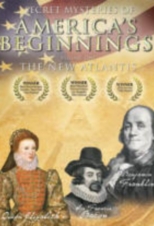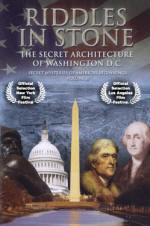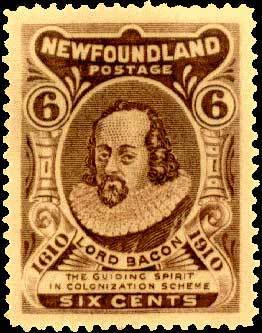Bio: Sir Francis Bacon
I’ve come across several references to Sir Francis Bacon in my research and have decided to put that information together for the website. This is very much a work in progress.
Wikipedia:Francis Bacon, 1st Viscount St Alban (22 January 1561 – 9 April 1626) was an English philosopher, statesman and essayist, but is best known as a philosophical advocate and defender of the scientific revolution. Indeed, his dedication brought him into a rare historical group of scientists who were killed by their own experiments. His works established and popularized an inductive methodology for scientific inquiry, often called the Baconian method or simply, the scientific method. In the context of his time such methods were connected with the occult trends of Hermeticism and alchemy. Western alchemy has always been closely connected with Hermeticism, a philosophical and spiritual system that traces its roots to Hermes Trismegistus, a syncretic Egyptian-Greek deity and legendary alchemist. These two disciplines influenced the birth of Rosicrucianism, an important esoteric movement of the seventeenth century. In the course of the early modern period, mainstream alchemy evolved into modern chemistry. Nevertheless, his demand for a planned procedure of investigating all things natural marked a new turn in the rhetorical and theoretical framework for science, much of which still surrounds conceptions of proper methodology today. Bacon was knighted in 1603, created Baron Verulam in 1618, and created Viscount St Alban in 1621; without heirs, both peerages became extinct upon his death. He has been credited as the creator of the English essay.
Works & Philosophy
Bacon’s works include his Essays, as well as the Colours of Good and Evil and the Meditationes Sacrae, all published in 1597. His famous aphorism, “knowledge is power,” is found in the Meditations. He published The Proficience and Advancement of Learning in 1605. Bacon also wrote In felicem memoriam Elizabethae, a eulogy for the queen written in 1609; and various philosophical works which constitute the fragmentary and incomplete Instauratio magna, the most important part of which is the Novum Organum (published 1620). Bacon also wrote the Astrologia Sana and expressed his belief that stars had physical effects on the planet. He is also known for The New Atlantis, a utopian novel he wrote in 1626.Bacon did not propose an actual philosophy, but rather a method of developing philosophy; he wrote that, whilst philosophy at the time used the deductive syllogism to interpret nature, the philosopher should instead proceed through inductive reasoning from fact to axiom to law. Before beginning this induction, the inquirer is to free his mind from certain false notions or tendencies which distort the truth. These are called “Idols”[3] (idola), and are of four kinds: “Idols of the Tribe” (idola tribus), which are common to the race; “Idols of the Den” (idola specus), which are peculiar to the individual; “Idols of the Marketplace” (idola fori), coming from the misuse of language; and “Idols of the Theatre” (idola theatri), which result from an abuse of authority. The end of induction is the discovery of forms, the ways in which natural phenomena occur, the causes from which they proceed. Bacon’s developments of the inductive philosophy would revolutionize the future thought of humanity.
Bacon’s somewhat fragmentary ethical system, derived through use of his methods, is explicated in the seventh and eighth books of his De augmentis scientiarum (1623). He distinguishes between duty to the community, an ethical matter, and duty to God, a purely religious matter. Any moral action is the action of the human will, which is governed by reason and spurred on by the passions; habit is what aids men in directing their will toward the good. No universal rules can be made, as both situations and men’s characters differ.
Bacon distinctly separated religion and philosophy, though the two can coexist. Where philosophy is based on reason, faith is based on revelation, and therefore irrational — in De augmentis he writes that “the more discordant, therefore, and incredible, the divine mystery is, the more honour is shown to God in believing it, and the nobler is the victory of faith.” And yet he writes in “The Essays: Of Atheism” that “a little philosophy inclineth man’s mind to atheism; but depth in philosophy bringeth men’s minds about to religion,” suggesting he continued to employ inductive reasoning in all areas of his life, including his own spiritual beliefs.
Bacon contrasted the new approach, of the development of science, with that of the middle ages. He once said, to top it all off: “Men have sought to make a world from their own conception and to draw from their own minds all the material which they employed, but if, instead of doing so, they had consulted experience and observation, they would have the facts and not opinions to reason about, and might have ultimately arrived at the knowledge of the laws which govern the material world.”
Bacon and Shakespeare
Since the 1800s, many scholars have written that Bacon was the author of the works attributed to Shakespeare (see Shakespearean authorship).
“Knowledge is power.” | Sir Francis Bacon (1561 - 1626), Religious Meditations, Of Heresies, 1597
Francis Bacon’s Influence on America?
Secret Mysteries of America’s Beginnings
Volume One - The New Atlantis
Secret Mysteries of Americas Beginnings unfolds the fascinating history behind the founding of America, and exposes the esoteric underbelly of its design. Why is Washington D.C. built on the 77th Meridian? And are the Revolutionary War cities really built in perfect alignment with Stonehenge?
Follow the journey of secret societies from England to the New World and learn of their ancient hope of establishing a democratic commonwealth that would one day extend to all nations.
In the 16th century, Sir Francis Bacon was at the helm of such societies as the leader of the Rosicrucians and first Grand Master of modern Freemasonry. As such, he is considered by some to be the true founder of America.
For centuries, controversy has surrounded this man who is said to be the illegitimate son of Queen Elizabeth I and the real author behind the Shakespeare plays.
When Bacon penned his classic work, The New Atlantis, he outlined his vision for the perfect society; a democratic commonwealth governed by scientific achievement. How were the founding fathers impacted by Bacon’s plan? And is America being driven by this vision today?Where The DaVinci Code meets National Treasure. Learn the incredible secrets of the esoteric traditions, hidden within the manifold layers of signs and symbols in our nation’s infrastructure; symbols that for many represent the secret destiny of the world’s greatest nation. Running Time: 3 hour historical documentary
Secret Mysteries of America’s Beginnings
Volume Two Riddles In Stone: Secret Architecture of Washington, D.C.
This documentary explores the highly controversial subject of the design of America’s capital. Was the city built to reflect the majesty of America’s newfound freedom? Or the hidden agenda of secret societies? With every major cornerstone laid by Freemasons, was the city built in a Masonic pattern?
Embark upon this incredible journey as Riddles in Stone interviews experts on both sides of the heated debate. Watch as Freemason apologists defend some of the most direct and hard-hitting questions concerning the influence of Masonry in America, and its symbolism in Washington, D.C. Alongside them are leading researchers who maintain that occult architecture permeates the city, and conceals a secret agenda.
Was D.C. laid out according to the pattern of the stars? Is there really a pentagram in the street layout north of the White House? Does a Masonic square and compass extend from the Capitol building to the Washington monument? And why is the city filled with zodiac symbols, mysterious faces, and various god and goddess images? If America was founded as a Christian nation only, where are the Christian images? Or does Washington D.C. symbolize another Christ, the Masonic Christ? Running Time: 3 hour historical documentary
Find out, in this bold and sure-to-be controversial documentary. Order here, $39.88 for both.
Newfoundland Specialized Stamp Catalogue (NSSC)
“Lord Bacon The Guiding Spirit in Colonization Scheme.” Sir Francis Bacon became Lord Verulam, not Lord Bacon as the caption described him. While Lord Chancellor to King James I he was instrumental in obtaining a charter for the Newfoundland company in which he was a prominent shareholder. The same design appeared earlier in Prowse (1895:92), who described it as being from an old portrait.
- Bacon, Shakspere, and the Rosicrucians - The present consideration of the Bacon--Shakspere--Rosicrucian controversy is undertaken not for the vain purpose of digging up dead men’s bones but rather in the hope that a critical analysis will aid in the rediscovery of that knowledge lost to the world since the oracles were silenced. It was W. F. C. Wigston who called the Bard of Avon “phantom Captain Shakespeare, the Rosicrucian mask.” This constitutes one of the most significant statements relating to the Bacon-Shakspere controversy.
-
Link: Francis Bacon made immense contributions to both Freemasonry
and Rosicrucianism -- some would say he was responsible for impregnating
the occult in the former. However, high ranking Freemasons such as Albert
Pike and Manly P Hall revealed no Kabalistic keys or anything of the
sort in their conversations/writings. Modern Rosicrucian fraternities
such as AMORC also do not reveal anything of essence... up to their
9th degree monographs. Even the surviving works of famous Rosicrucians
such as da Vinci, Descartes, Newton, Leibniz, Beethoven, etc. etc. give
little or nothing to the researcher. If it’s true that Bacon wrote
the Shakespeare plays, and if it’s true that he used these to
embed Kabalistic secrets for the trained eye, then you may be right
in saying the knowledge is truly public. But the keys still remain foreign
to secular society by nature of their concealment.
The Bacon-Shakespeare controversy: http://www.sirbacon.org/ - New Atlantis by Sir Francis Bacon - Written in 1626
- American Baconiana - The Bacon Society of America was organized and held its first general meeting in New York City at the rooms of the National Arts Club on Monday, May 15th, 1922. Its announcement at that time says: “In this age of marvelous progress in the knowledge of Nature’s laws and the consequent startlingly rapid succession of amazing discoveries and useful inventions, it seems most fitting that an association of scholars and laymen like this, recognizing the incalculable debt which mankind owes to the prodigious genius and indefatigable labors of the world’s greatest modern philosopher, FRANCIS BACON, should be permanently formed to study his life, works and influence.”
- Adullam Films Newsletter - Adullam Films is pleased to present our new website! For a long time, we have desired to share with others some of the materials gathered through our work in film and video. These materials include our newly developed DOCU-CLIPS page, which features never-before-seen interview clips (well, mostly) from the outstanding speakers we’ve had the pleasure of meeting over the past few years.
Nieves de Madariaga Mathews (Javier Solana’s mother) and Francis Bacon
Javier is the younger of the two sons of de Madariaga’s daughter Nieves (1917-2003). Solana’s mother, like her more famous father, was also a recognized scholar and writer. Her full name at the time of her death was Nieves Hayat de Madariaga Mathews. She was employed for upwards of 20 years by the FAO (Food and Agricultural Organization), a United Nations agency headquartered in Rome. Her Yale University-published book on the life of Sir Francis Bacon was released in 1996. The 606 page volume is entitled, Francis Bacon: The History of a Character Assassination.[3] Interestingly, Nieves de Madariaga Mathews (Solana’s mother) claimed in her acknowledgements that the book was suggested and blessed by “my teacher, Osho, who thought highly of Francis Bacon and gave the book his blessing.” Osho is more commonly known in USA circles as Bhagwan Shree Rajneesh.[4] Rajneesh gained extensive notoriety in the USA in the 1980s for his alleged Oregon cult compound. He was deported from the USA for its claimed excesses. As well as Rajneesh, Solana’s mother was equally deeply and publicly influenced by the works of Immanuel Velikovsky. She devoted much time to her pursuit of both Velikovsky and Sir Francis Bacon literacy and causes.
“Be not overcome
of evil, but overcome evil with good.” Romans 12:21 In accordance with Title 17 U.S.C. Section 107, any copyrighted work herein is archived under fair use without profit or payment to those who have expressed a prior interest in reviewing the included information for personal use, non-profit research and educational purposes only. Ref.
Watchman Bible Study | 2005 - 2026


